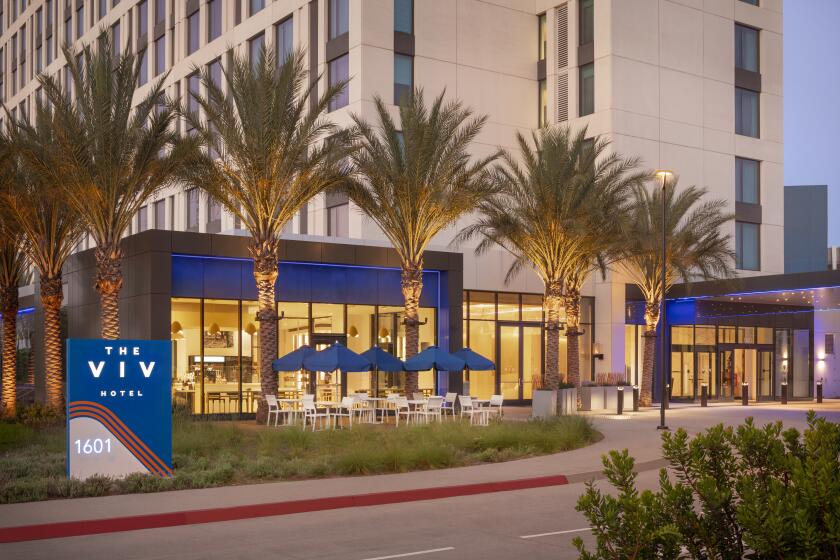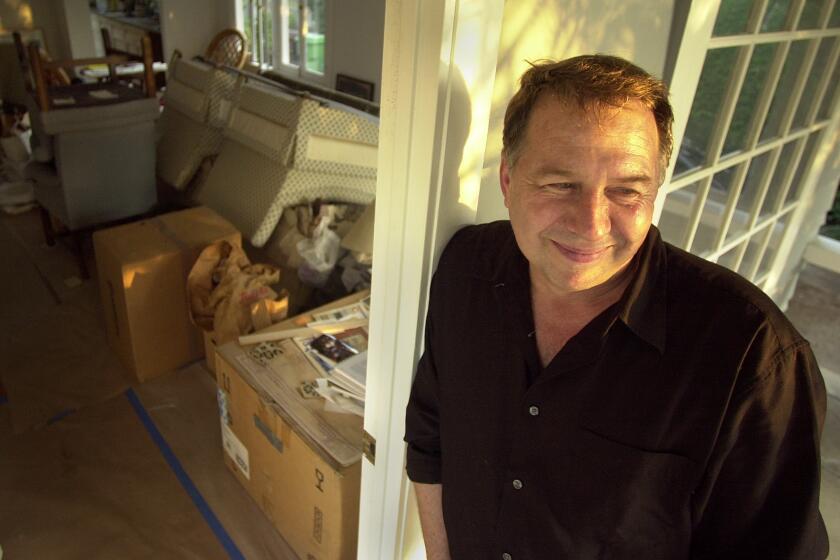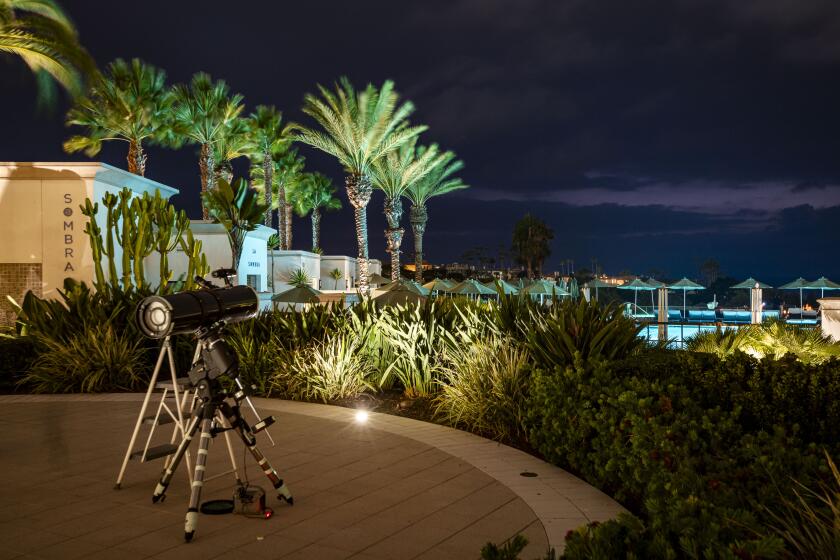‘They get people off the ground’: Irvine organization celebrates donation of 1 million wheelchairs
Before Don Schoendorfer founded the Irvine-based Free Wheelchair Mission, a trip to Morocco he and his wife took in 1979 first sparked his desire in donating wheelchairs globally.
As he passed a narrow street in Medina during that trip, he saw a woman lying on her stomach who was using her hands to drag herself across the road. She moved a few inches at a time, moving carefully so that no one would step on her hands, he said. He remembers no one stopping to help her.
“That was a hard reality to react to and we didn’t know how to react to it, so we walked away and essentially walked away for around 20 years,” Schoendorfer said. “But life caught up to us.”
Later on, Schoendorfer began to fiddle with spare parts he had in his home garage from his work as an engineer. He spent around two years figuring out how to build an inexpensive, durable wheelchair.
He eventually built multiple ones to give.
Since handing out the first wheelchair in India in 2001, the Free Wheelchair Mission has donated 1 million wheelchairs to 93 countries across the world, an accomplishment that the faith-based organization celebrated at its annual Miracle of Mobility gala at the Segerstrom Center for the Arts in Costa Mesa on Thursday.
“Each wheelchair represents a life changed, someone who can now go to school or to work and can enjoy a life of mobility,” Schoendorfer said in a release. “It also represents a great network of generous supporters and committed partners dedicated to giving back and creating opportunity for people in great need around the world.”
The first wheelchair was given to a boy with cerebral palsy during a medical mission Schoendorfer took to India in February 2001, he said.
Schoendorfer remembers seeing the boy’s family carry him since he could not control his arms or legs.
“It was very hot and humid and they looked worn out from carrying him,” Schoendorfer said. “But seeing him in the chair, you could see the relief of the parents.”
After giving away the chair, Schoendorfer boarded a bus that was driving away until the boy’s mother flagged it down, coming out with broken glasses of water for the people on the mission.
“That was all she had to offer us in return,” Schoendorfer said. “It was very emotional.”
After coming home from the mission trip, Schoendorfer planned to return to his regular job until he found out the company he had been working for went bankrupt.
“That was when it all started to line up,” he said, realizing he would now focus his energy on the Free Wheelchair Mission. “I wasn’t going to admit it back then, but I’d admit it now. This was God’s plan.”
The 1 million wheelchairs given by the Free Wheelchair Mission come in three different designs, including a foldable one.
Since the different types of chairs are made with similar components and produced by a manufacturer in China, they are able to be built and delivered at a cost of $80 per chair, a cost that’s covered by donations and fundraising in the U.S. so that recipients in developing countries can receive their wheelchairs for free.
“I can’t speak enough to what the [Free Wheelchair Mission] does,” said Robert Kalatschan, founder of the Huntington Beach-based nonprofit Giving It Back to Kids, which partners with the Mission to deport the chairs. “For one, they get people off the ground and I never want to take away what it means to take someone off the ground — to give dignity, grace and hope back to a person.”
Wheelchair recipients from El Salvador, Jamaica, Uganda and Vietnam were in attendance at the Mission’s gala Thursday. Among them was Vo Thi Thuy Hien, 19, who lost mobility after treatments and surgeries to treat a tumor on her spine, which caused her to leave school, according to a release.
By having her wheelchair, she can seek an education in multimedia design.
“When we first started our work, the goal was to change the life of each individual in need,” Schoendorfer said in a release. “That is still our goal, however, reaching 1 million makes us realize that we can help another million and then another million after that.”
Twitter: @AlexandraChan10
All the latest on Orange County from Orange County.
Get our free TimesOC newsletter.
You may occasionally receive promotional content from the Daily Pilot.




